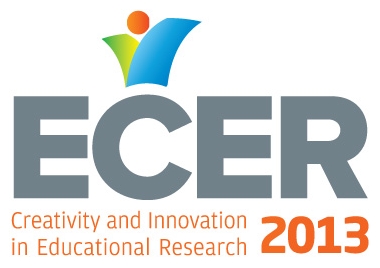Multilingualism in the Mainstream Classroom as a Means to Enhancing Creativity and Innovation in Education - Examples from Video Studies
Time: Wednesday, 11/Sep/2013: 9:00am - 10:30am
Room: DCONF - Conference Hall, basement, D block
Due to new forms of migration, the diversity of cultural heritages and languages spoken in European schools has multiplied in the last two decades. Although at the European rhetoric’s level, there is an official celebration of (migration-induced) multilingualism, as well as several initiatives to promote its active use within the mainstream classrooms, current research shows that it seems to function as a risk factor for children and youth rather than a viable resource. International comparative monitoring studies of education systems show that migrant pupils in Europe are on average less successful than their resident peers. This is particularly true in the three European sites chosen for the symposium – Belgium, Germany and Luxembourg. Here, the achievement gap between pupils with and without a migrant background is exceptionally large, despite of considerable investments in their accommodation of respective mainstream educational system.
With respect to education we assume that the positive potential of diversity can successfully be unfolded (and possible constraints be reduced) when multilingualism is explicitly addressed and included in instructional settings. Furthermore, we suppose that this is effective, not only in providing a more positive and motivating learning atmosphere, but also in leading to larger learning effects. It is probable that these effects do not only occur in language teaching as a subject, but also in other relevant areas of the curriculum. Such assumptions are supported by findings on cognitive advantages of multilingual speakers, in particular, meta-linguistic knowledge and executive control (Bialystok 2009; Adesope, Lavin, Thomson & Ungerleider 2010). These cognitive benefits are excellent general prerequisites for complex learning tasks. Thus, they should also be useful docking points for a successful and productive use of multilingualism within the mainstream classroom. However, and despite these research findings, migration-induced linguistic and cultural diversity is still often perceived as a threat to the linguistic self-understanding (Gogolin 1994) of most European nation-states.
The acknowledgement and active use of multilingualism in the mainstream classroom has, however, been rather under-researched, in particular regarding subject-matter classes of older pupils (after primary education). Previous findings suggest that allowing and promoting multilingual practices in the mainstream classroom leads to greater engagement of migrant pupils, better understanding of contents, as well as to a general acknowledgement of multilingualism as a resource for learning (Gogolin / Neumann 1997, Blair / Bourne 1998; Schütte 2009).
In our symposium we thus address the issue of the acknowledgement of migration-induced multilingualism as a resource for the learning in the mainstream classroom, as well as of its active use in and for teaching and learning, both at school as well as the university.
Presentations of the Symposium
Exploiting Multilingual Repertoires as a Resource for Learning
Multilingualism in Subject-matter Classes - a Case in Favour of Multilingualism in Mainstream Classrooms
Joana Duarte (University of Hamburg), Ingrid Gogolin (University of Hamburg)
Multilingual School Population: a Lever for Linguistically Innovative Classrooms?
Anouk Van der Wildt (University of Gent), Mieke Van Houtte (University of Gent), Piet Van Avermaet (University of Gent),
Study without borders: Multilingualism as a resource for Teaching and Learning in Higher Education
Adelheid Hu (University of Luxembourg), Francine Uwera (University of Luxembourg)
